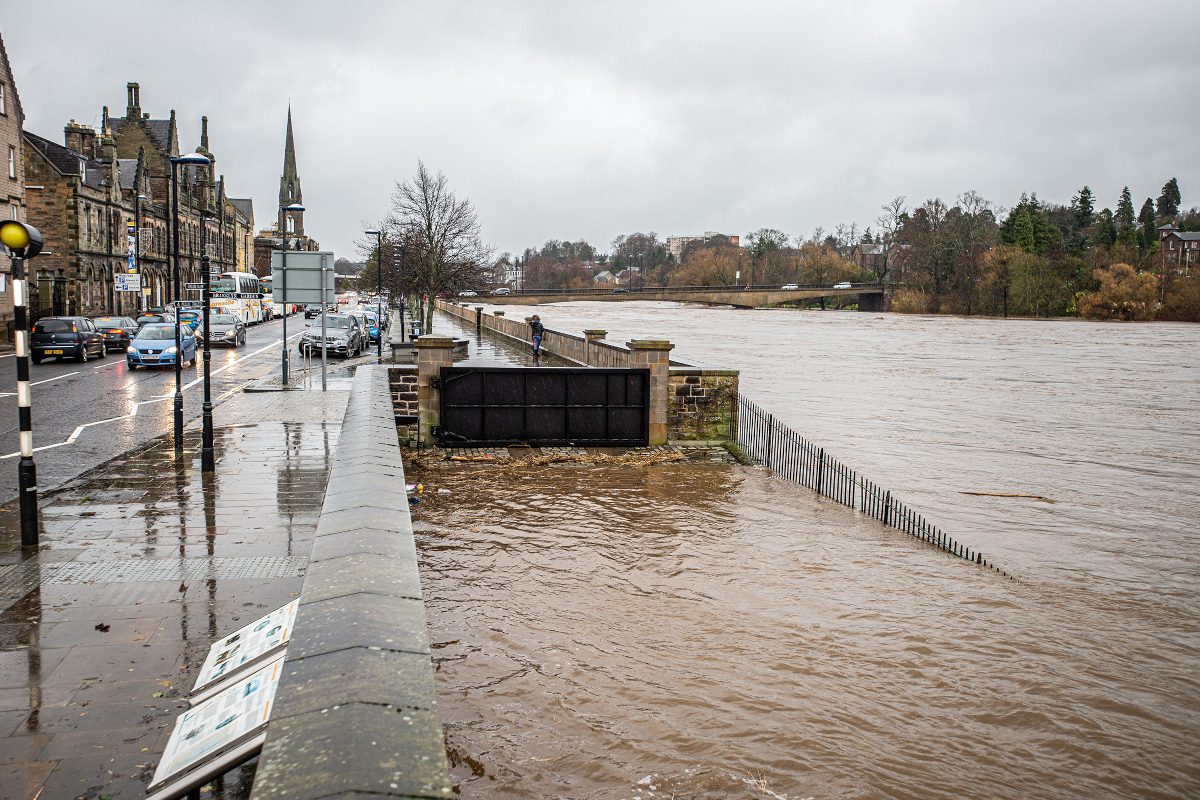The Government must set up a single national flood reporting and information service to prevent homes and livelihoods being exposed, a cross-party Committee of MPs has warned.
In its report published on 13 October, the cross-party Environmental Audit Committee warns many communities still do not know who is responsible for managing flood risk where they live, more than a decade on from attempted reform. There is no single point of national accountability, with responsibilities fragmented and coordination inconsistent. This undermines trust, delays response and obstructs long term planning.
These concerns come as MPs warn that the overall system for managing flooding is fragmented and reactive. Without funding for long-term resilience, communities are left exposed. Investment in solutions that manage water at the level of entire river catchments, widely recognised as essential, is inconsistent, while both new and existing properties lack measures designed to improve resilience. Protection, affordability and coverage of flood insurance is also an issue.
In this context, public awareness of the risk of flooding is “dangerously low”, the Committee says. Too many people do not understand the risks they face, how to respond to warnings, or how to protect their homes, leaving lives and livelihoods exposed, it says.
MPs recommend the Government establish a single, widely promoted national flood reporting and information service by March 2026, offering a clear point of contact for all types of flooding, and accessible to the public. This is a “strategic necessity” and must be treated as a core component of national flood strategy, they say.
The Committee also calls for the Government to clarify accountability for flood risk management by 2026, perhaps through the strengthening the Environment Agency’s mandate.
Local flood action groups, indispensable to England’s resilience, are undervalued, the Committee says. One witness to the inquiry described taking on multiple roles coordinating and advocating for action alongside a full-time job, as no local agency was leading. The Committee recommends that the Government should establish a national framework for supporting these groups and co-design a major national flood awareness campaign with them.
Flooding is one of the most severe impacts of climate change for the UK, with an estimated 6.3 million properties currently at risk, according to the Environment Agency. Around two-thirds of England is now considered “floodable” under certain conditions, while the cost of physical damage from flooding is expected to rise from an estimated £2.4 billion to £3.6 billion by 2050.
Surface water flooding, which occurs when heavy rainfall overwhelms drainage systems, is having a growing impact. It is now the most common source of flooding in England, with 4.6 million properties at risk. Yet the Committee finds that this issue is often underestimated and represents a “major gap” in national flood resilience.
In its report, the Committee describes flooding as having “deep humanitarian consequences”. Some witnesses to the Committee said repeated flooding had left them living in a “permanent state of anxiety”. Flooding can fracture community life, disrupting communities from schools, healthcare and other essential services, while children’s education, play and wellbeing are vulnerable.
Funding for flood protection often prioritises areas with more properties, or those of a higher value, the Committee finds. Areas with fewer properties or those of lower value can struggle to secure funding, even if the risk of flooding is high.
The Committee recommends that the Government’s new investment framework instead prioritise funding for communities most at risk from flooding and those who face “the greatest hardships and repeated flood events”. It should incorporate factors such as deprivation, health inequalities, insurance exclusion, and rural isolation in decision making.
The Committee also recommends that the Government:
- Increase the flood budget to at least £1.5 billion per year by 2030, as recommended by the former National Infrastructure Commission
- Work with the insurance and mortgage sectors to set up a successor flood insurance scheme to Flood Re, due to end in 2039
Chair of the Environmental Audit Committee, Toby Perkins, MP, said: “I know from my own constituency that flooding devastates communities, rips away livelihoods and causes horrific economic and psychological damage. As my community tragically found out with the death of Maureen Gilbert, who drowned due to flooding from Storm Babet in 2023, flooding can pose a threat to life too.
The Government has made some welcome progress; record levels of investment are set to secure defences for thousands of vulnerable properties. But this problem is only growing. Much more still needs to be done.
Victims deserve better than being passed from agency to agency. When your house is on fire, you know exactly who to call and what to expect from them. That isn’t the case with flooding. The increasing frequency of flood events suggests we need to treat this like other domestic emergencies.
A single national line would be a helpful step towards helping flood victims feel that the state has their back, and that they are not alone when they feel most vulnerable. A national flood awareness campaign would help the public to understand that while they should not panic, they must also prepare.
Flooding investment also needs to be much more inclusive. This is not merely a problem for those in our society with higher value homes; those at the other end of the scale have just as much to lose and fewer assets to fall back on. Calculating where to invest crucial funding must take account of factors like deprivation, rural isolation and health inequalities if this money is to make a real difference.”
Responding to the report, Cllr Arooj Shah, Chair of the LGA’s Neighbourhoods Committee said: “Councils are on the frontline of action in severe weather and play a vital role in keeping residents safe and informed, and supporting their recovery from flooding.
“Successful flood and coastal erosion risk management requires increased cooperation and cross-border partnerships, and the Environment Agency and water companies need to factor in more frequent and senior engagement with local authorities into their business model immediately.
“We need greater flexibility and transparency from government funding support schemes. Funding mechanisms designed for “once in every ten years” flooding events are not fit for purpose, and the financial pressures on local government have an impact on their ability to address issues such as flooding as much as they’d like.”
















